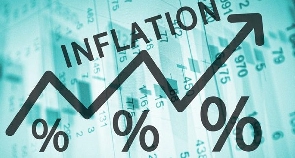Botswana's central bank sees annual inflation breaching the upper cap of its 3-6% target in the second quarter of this year, driven by recent tax increases and coronavirus-related supply side constraints, its governor said on Thursday.
Inflation dropped below 1% last year as the COVID-19 pandemic depressed economic activity but has been on the rise in the last few months, increasing to 3.2% in March, the first time it was within the objective range since September 2019.
"Due to supply-side factors related to the coronavirus pandemic as well as the upward adjustments in taxes and administered prices we see inflation breaching the 6 percent upper bound before it falls back within the range in the first quarter of 2022," Moses Pelaelo told a media briefing.
Tax hikes are seen as pushing companies to pass on increased costs to consumers in the form of higher prices, while supply side constraints in an environment of rising demand have also stoked some inflation.
Effective in April, the government hiked value added tax (VAT), increased the fuel levy and introduced a new tax on sugar-based drinks, which the central bank expects to drive prices higher.
Electricity tariffs also rose by 5% while rentals by state-owned Botswana Housing Corporation were adjusted upwards.
Despite prospects for higher inflation the central bank kept the bank rate at 3.75% on Thursday. It said it will maintain an accommodative monetary policy stance this year as it expects the drivers of higher inflationary pressure to be mostly transitory.
Africa Business News of Thursday, 29 April 2021
Source: reuters.com

















